Charles E W Bean, Diaries, AWM38 3DRL 606/67/1 - November - December 1916 - Part 5
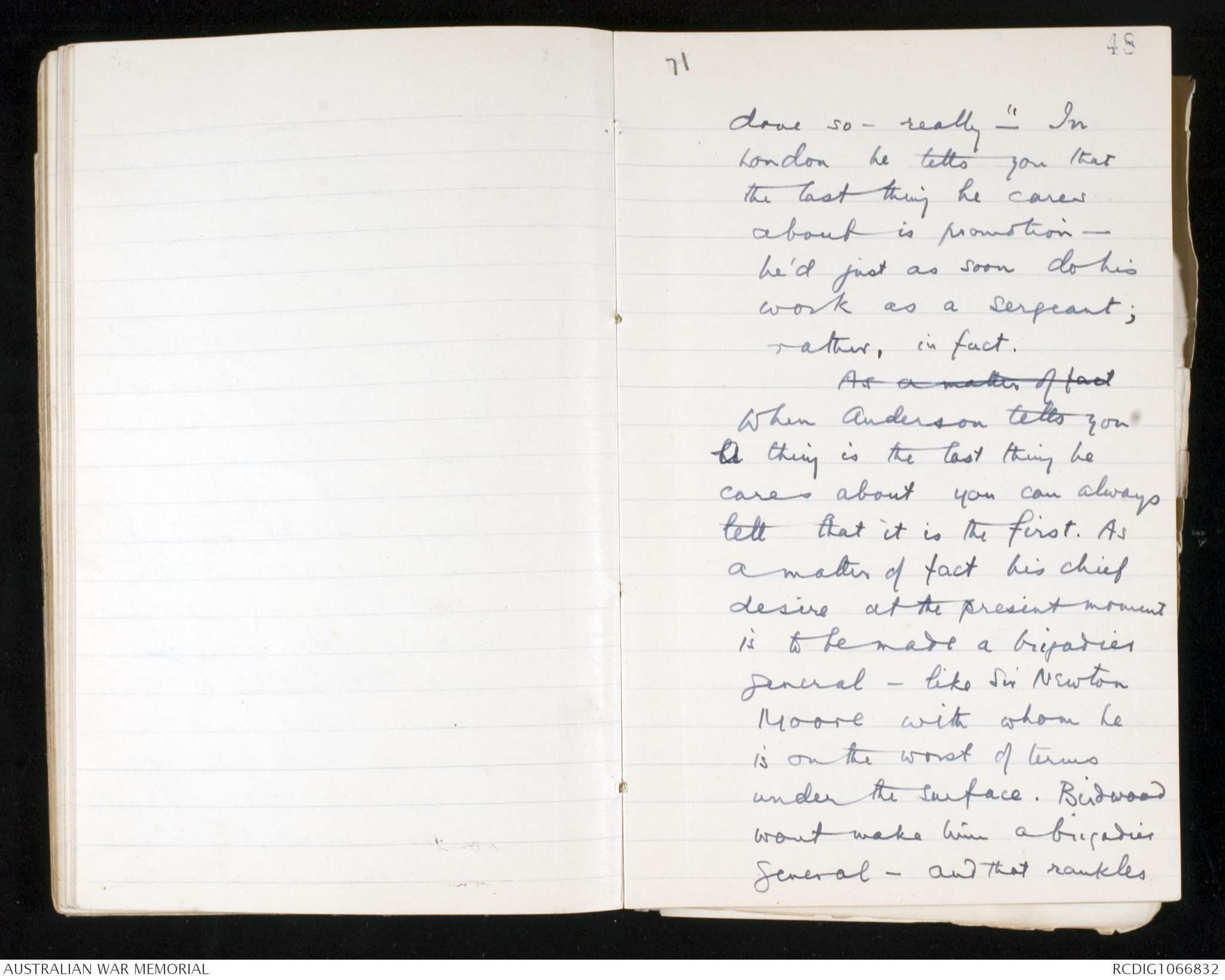
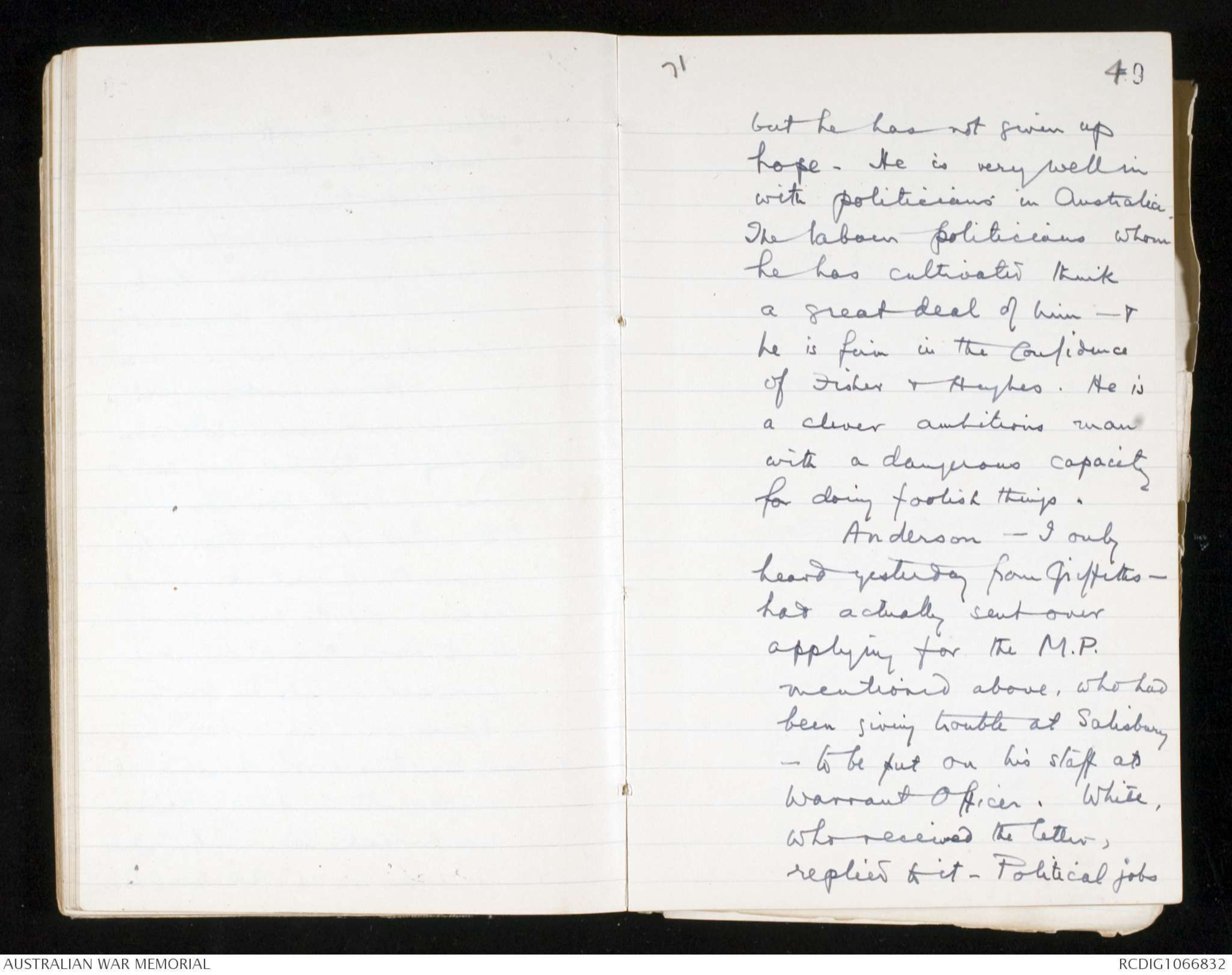
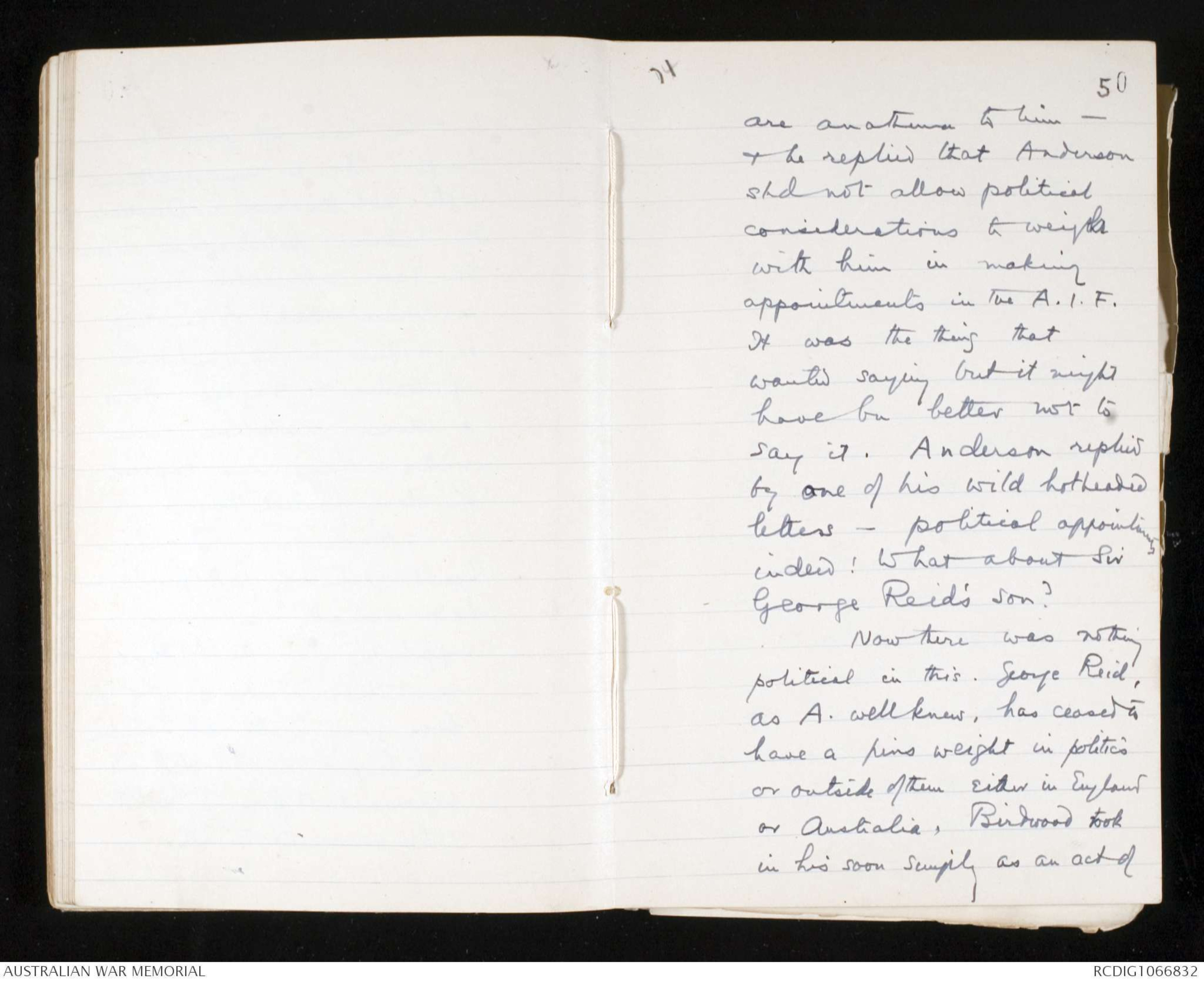
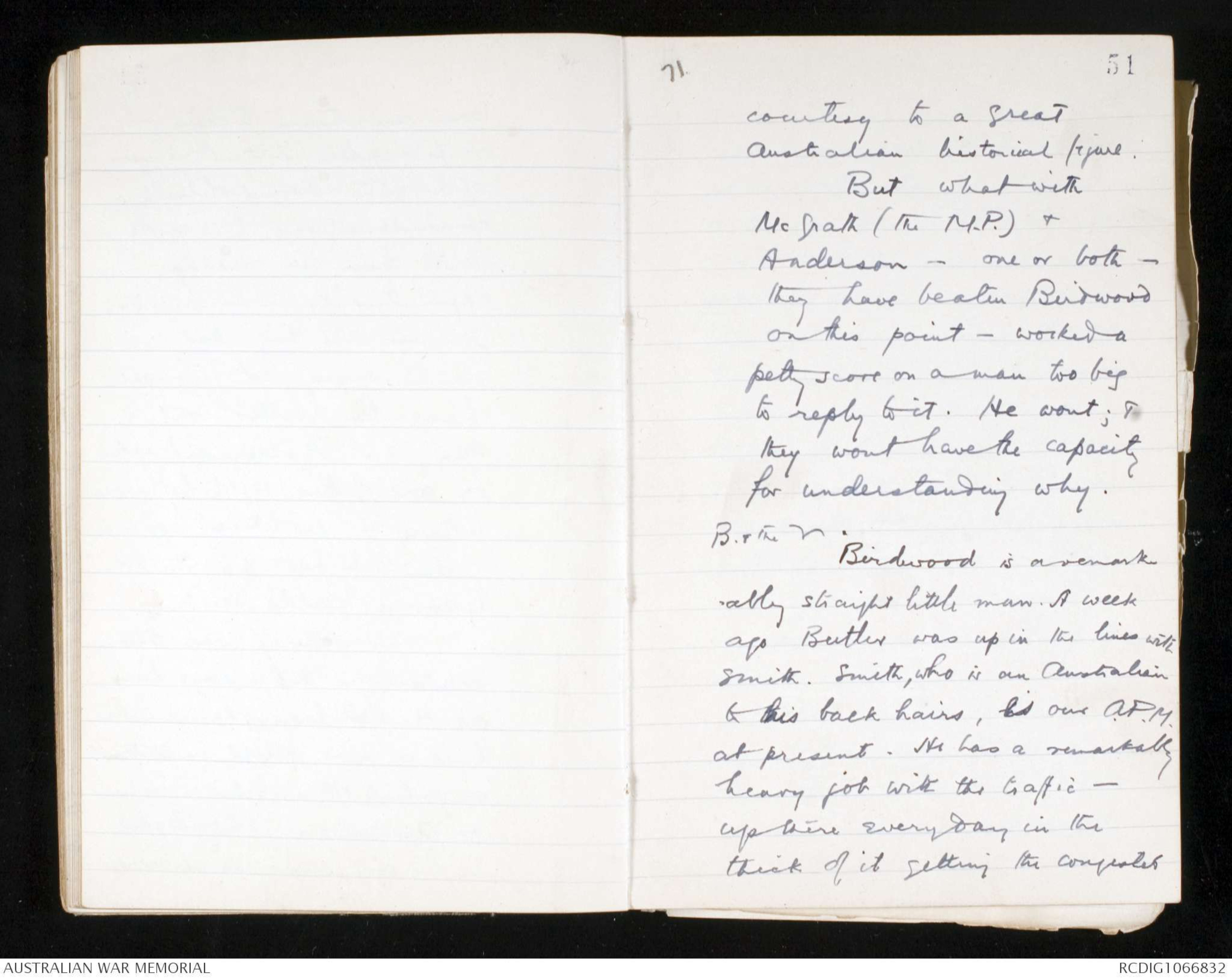
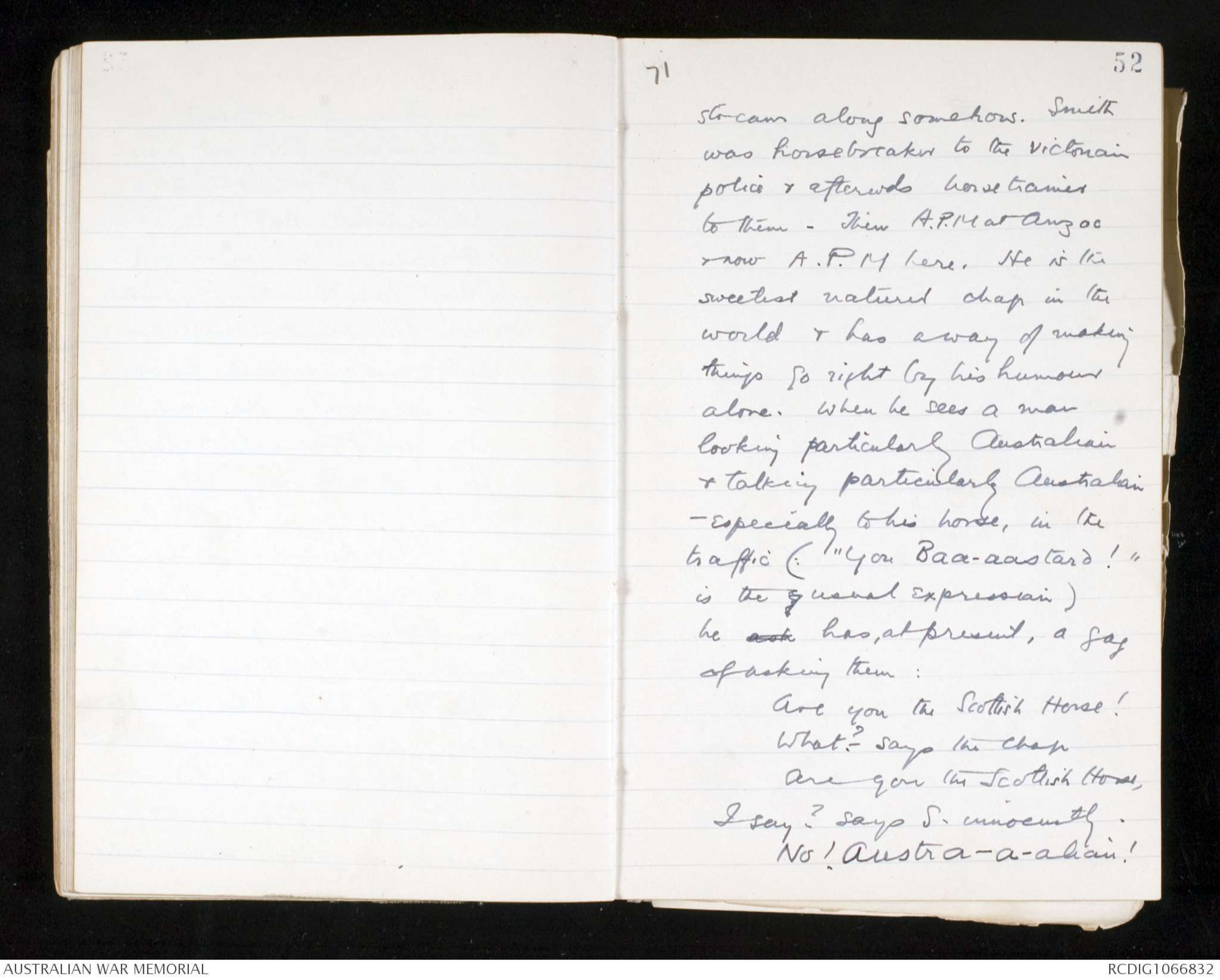
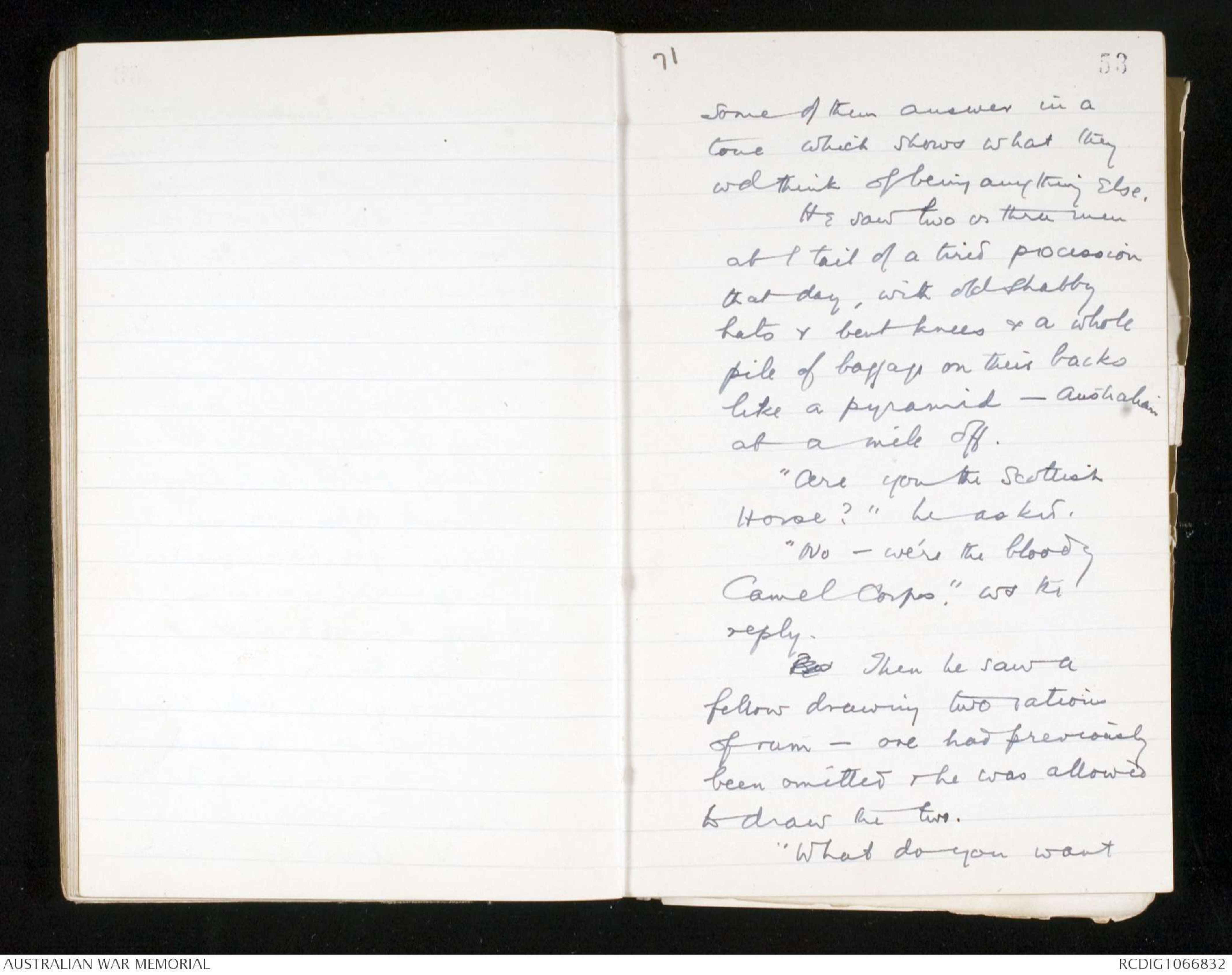
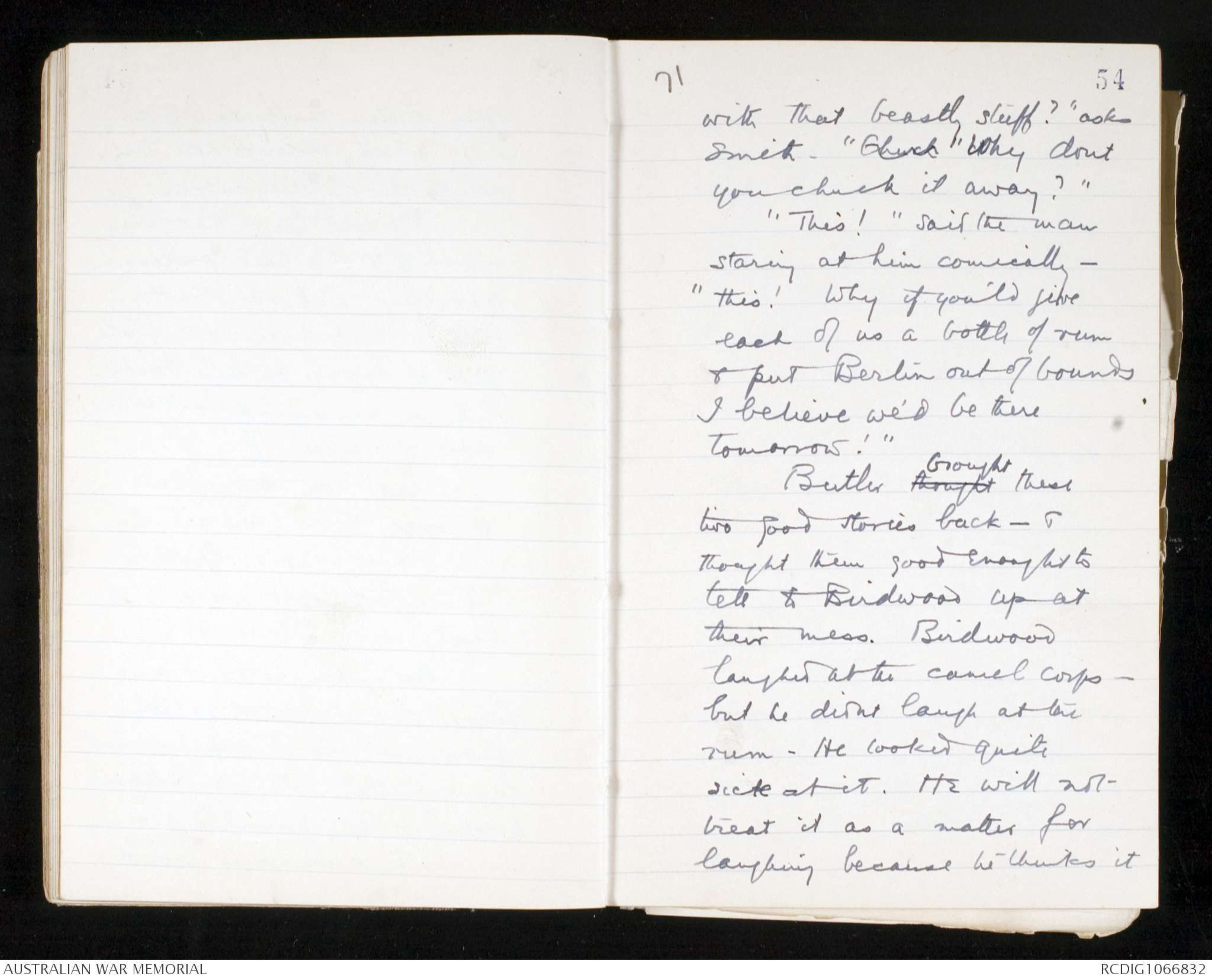
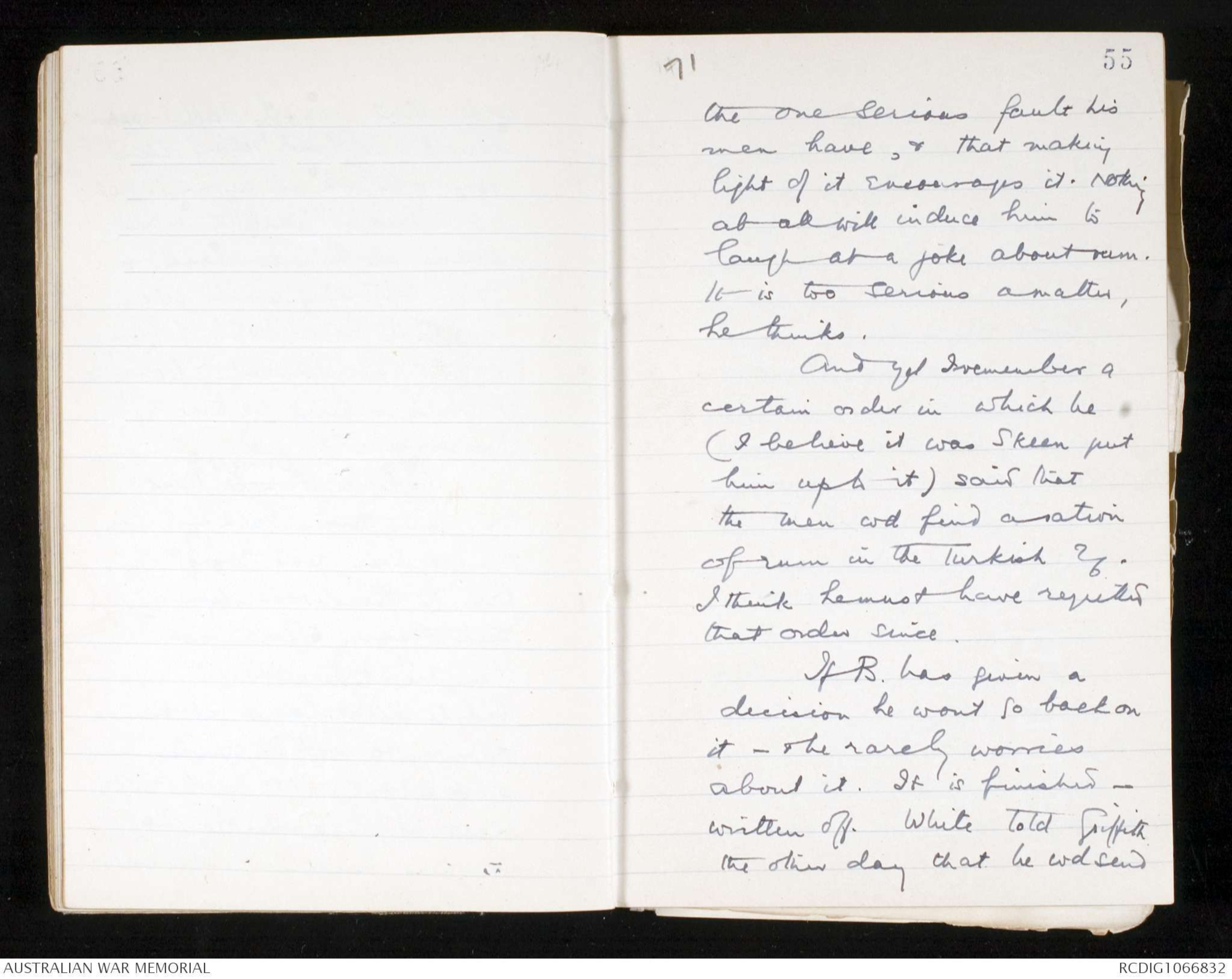
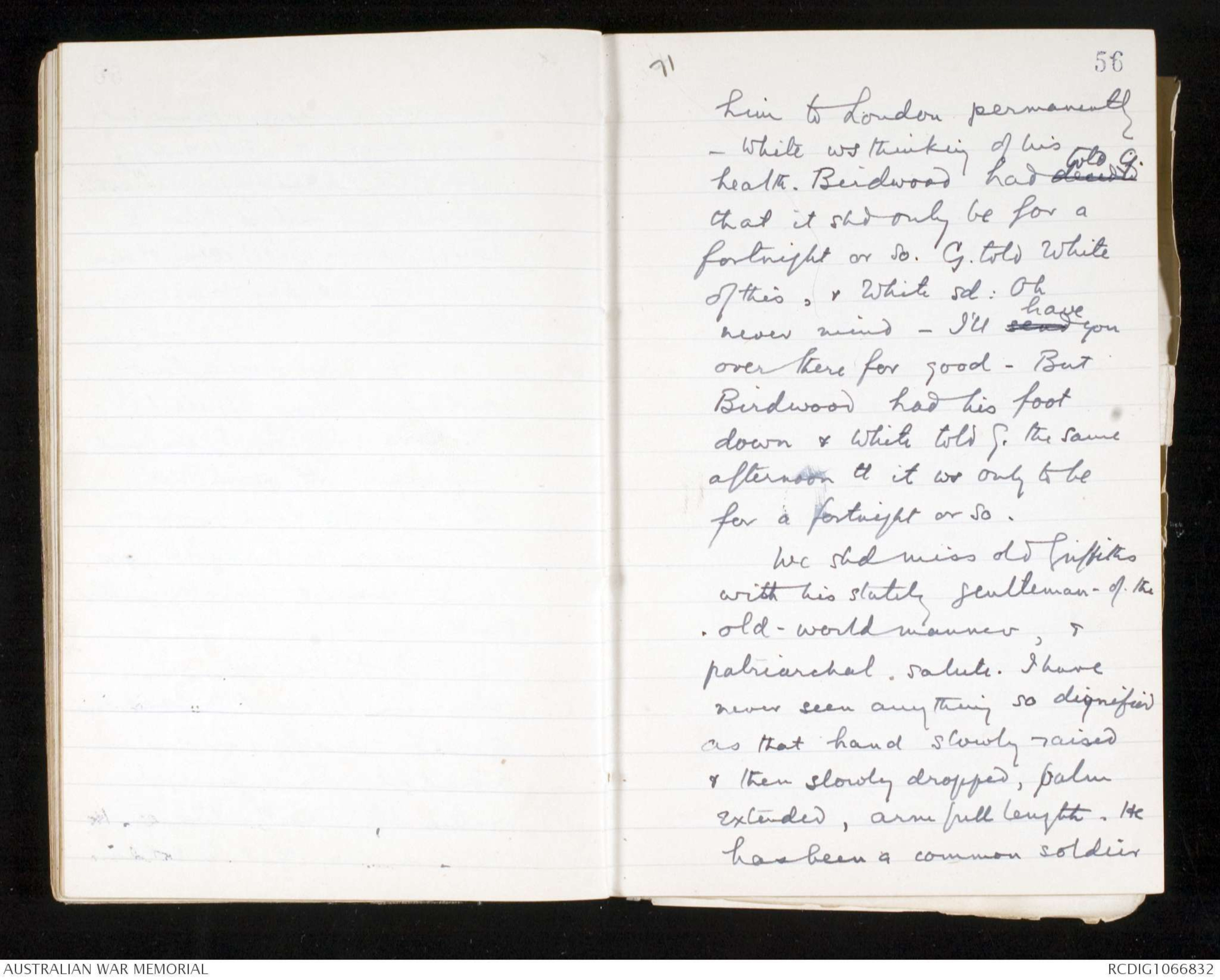
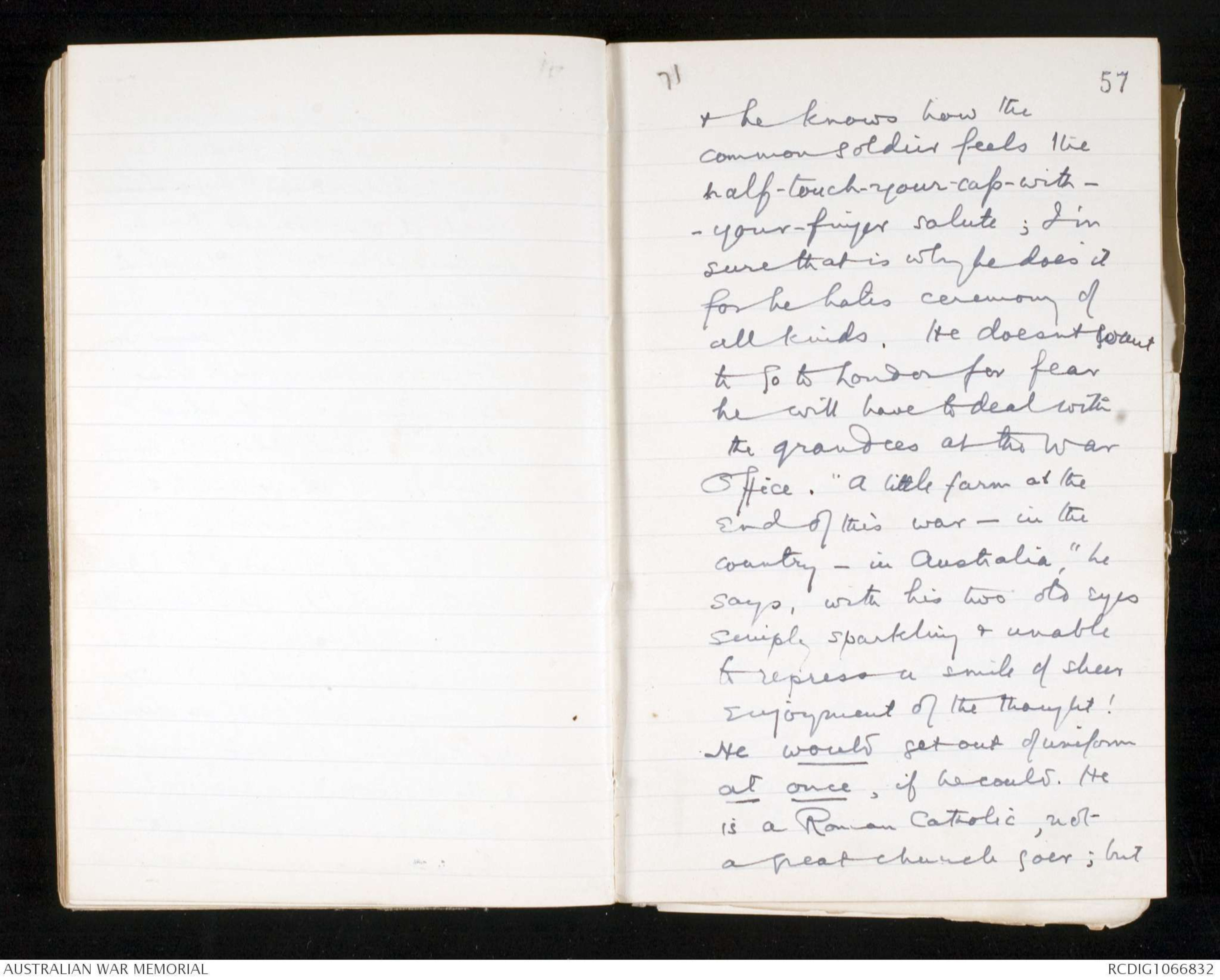
71
48
done so - really” - In
London he tells you that
the last thing he cares
about is promotion -
he'd just as soon do his
work as a sergeant;
rather, in fact.
As a matter of fact
When Anderson tells you
a thing is the last thing he
cares about you can always
tell that it is the first. As
a matter of fact his chief
desire at the present moment
is to be made a brigadier
general - like Sir Newton
Moore with whom he
is on the worst of terms
under the surface. Birdwood
wont make him a brigadier
general - and that rankles
71
49
but he has not given up
hope - He is very well in
with politicians in Australia.
The labour politicians whom
he has cultivated think
a great deal of him - &
he is firm in the confidence
of Fisher & Hughes. He is
a clever ambitious man
with a dangerous capacity
for doing foolish things.
Anderson - I only
heard yesterday from Griffiths -
had actually sent over
applying for the M.P.
mentioned above, who had
been giving trouble at Salisbury
- to be put on his staff as
Warrant Officer. White,
who received the letter,
replied to it - Political jobs
71
50
are anathema to him -
& he replied that Anderson
shd not allow political
considerations to weigh
with him in making
appointments in the A.I.F.
It was the thing that
wanted saying but it might
have bn better not to
say it. Anderson replied
by one of his wild hot headed
letters - political appointments
indeed! What about Sir
George Reid's son?
Now there was nothing
political in this. George Reid,
as A. well knew, has ceased to
have a pins weight in politics
or outside of them either in England
or Australia. Birdwood took
in his soon simply as an act of
71
51
courtesy to a great
Australian historical figure.
But what with
McGrath (the M.P.) &
Anderson - one or both -
they have beaten Birdwood
on this point - worked a
petty score on a man too big
to reply to it. He wont; &
they wont have the capacity
for understanding why.
B & the [shorthand].
Birdwood is a remarkably
straight little man. A week
ago Butler was up in the lines with
Smith. Smith, who is an Australian
to his back hairs, is our A.P.M.
at present. He has a remarkably
heavy job with the traffic -
up there every day in the
thick of it getting the congested
71
52
stream along somehow. Smith
was horsebreaker to the Victorian
police & afterwds horse trainer
to them - Their A.P.M. at Anzac
& now A.P.M here. He is the
sweetest natural chap in the
world & has a way of making
things go right by his humour
alone. When he sees a man
looking particularly Australian
& talking particularly Australian
- especially to his horse, in the
traffic (: "You Baa-aastard!"
is the x usual expression)
he ask has, at present, a gag
of asking them:
Are you the Scottish Horse!
What? - says the chap
Are you the Scottish Horse,
I say? says S. innocently.
NO! Austra - a - alian!
71
53
some of them answer in a
tone which shows what they
wd think of being anything else.
He saw two or three men
at / tail of a tired procession
that day, with old shabby
hats & bent knees & a whole
pile of baggage on their backs
like a pyramid - Australian
at a mile off.
"Are you the Scottish
Horse?" he asked.
"No - we're the bloody
Camel Corps." ws the
reply.But Then he saw a
fellow drawing two rations
of rum - one had previously
been omitted & he was allowed
to draw the two.
"What do you want
71
54
with that beastly stuff?" asks
Smith. "Chuck "Why dont
you chuck it away?"
"This!" said the man
staring at him comically -
"this! Why if you'ld give
each of us a bottle of rum
& put Berlin out of bounds
I believe we'd be there
tomorrow!"
Butler thought brought these
two good stories back - &
thought them good enough to
tell to Birdwood up at
their mess. Birdwood
laughed at the Camel Corps -
but he didnt laugh at the
rum. He looked quite
sick at it. He will not
treat it as a matter for
laughing because he thinks it
71
55
the one serious fault his
men have, & that making
light of it encourages it. Nothing
at all will induce him to
laugh at a joke about rum.
It is too serious a matter,
he thinks.
And yet I remember a
certain order in which he
(I believe it was Skeen put
him up to it) said that
the men wd find a ration
of rum in the the Turkish trenches.
I think he must have regretted
that order since.
If B. has given a
decision he wont go back on
it - & he rarely worries
about it. It is finished -
written off. White told Griffith
the other day that he wd send
71
56
him to London permanently
- White ws thinking of his
health. Birdwood had decided told G.
that it shd only be for a
fortnight or so. G. told White
of this, & White sd: Oh
never mind - I'll send have you
over there for good - But
Birdwood had his foot
down & White told G. the same
afternoon tt it ws only to be
for a fortnight or so.
We shd miss old Griffiths
with his stately gentleman-of-the
-old-world manner, &
patriarchal - salute. I have
never seen anything so dignified
as that hand slowly raised
& then slowly dropped, palm
extended, arm full length. He
has been a common soldier
71
57
& he knows how the
common soldier feels the
half-touch-your-cap-with-
-your-finger salute; I'm
sure that is why he does it
for he hates ceremony of
all kinds. He doesnt want
to go to London for fear
he will have to deal with
the grandees at the War
Office. "A little farm at the
end of this war - in the
country - in Australia," he
says, with his two old eyes
simply sparkling & unable
to repress a smile of sheer
enjoyment of the thought!
He would get out of uniform
at once, if he could. He
is a Roman Catholic, not
a great church goer; but
 Lulu B
Lulu BThis transcription item is now locked to you for editing. To release the lock either Save your changes or Cancel.
This lock will be automatically released after 60 minutes of inactivity.